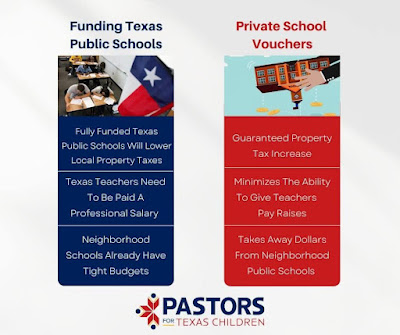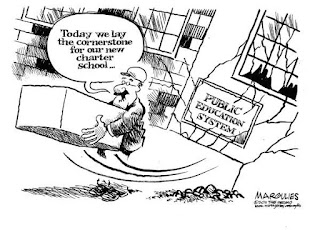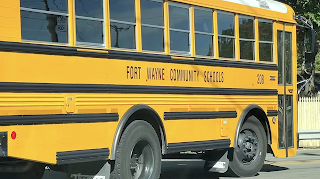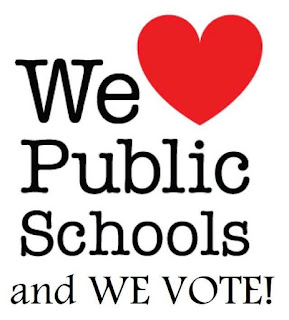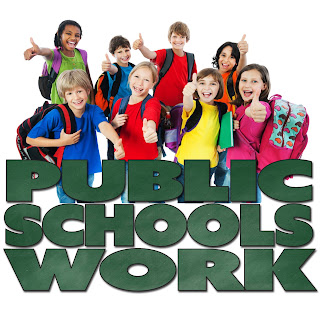Be sure to enter your email address in the Follow Us By Email box in the right-hand column to be informed when our blog posts are published.
[NOTE: Due to the Memorial Day Holiday, the next posting of NEIFPE's In Case You Missed It will be on June 6.]
EQUITABLE CHOICE?
Chris Lubienski: “Making Choice Equitable” Is Unlikely, Maybe Impossible
The pro-privatization Hoover Institution is blind to choice programs promoting inequities.
From Diane Ravitch
A report from the Hoover Institution seeks to offer evidence-based guidance for policymakers in shaping more equitable outcomes from school choice programs. This review examines the report’s claims, its representation of the research, and its use of research in forming those recommendations. The review finds that although the report is useful as a snapshot of the current status of choice programs in the United States, its use of research is often problematic. Some of the research is misrepresented, many claims are made without citations to evidence, and some of the recommendations bear no connection to the evidence provided in the report. As such, the report is, as intended, a political guidebook for conservative policymakers that fails to offer evidence-based guidance on making choice more equitable.
INDIANA LAGS IN EDUCATION
Indiana lags in education. Don’t blame history.
Steve Hinnefeld tackles the topic of educational attainment in Indiana and along the way gives us a quick review of a new book, Hoosiers: A New History of Indiana by Indiana University historian, James H. Madison.
Why does Indiana lag behind when it comes to education? Why is the state a "college degree desert?" Hinnefeld places the blame on "our elected officials."
From School Matters
James Briggs of the Indianapolis Star convincingly connects Indiana’s economic malaise with its status as “one of the worst states in American for educational attainment” in an excellent column published this month.
But I think the column oversimplifies when it suggests Indiana’s current failings are embedded in the state’s history. “The story is always more complicated when we move to history,” the Indiana historian James Madison told me.
Caleb Mills advocated for public education in a series of influential essays in the 1800s. (Digital image © 2005 Indiana Historical Society. All Rights Reserved. Source: W. H. Bass Photo Company Collection). I reached out to Madison to ask about the claim, attributed to the writer and consultant Aaron Renn, that Indiana “has always been poorly educated” due to “the cultural influences of large Quaker and southern-born populations at the time of Indiana’s founding.”
The Quakers? “I don’t know any basis for that statement,” said Madison, the Thomas and Kathryn Miller professor emeritus of history at Indiana University. “Quite the contrary, Quakers tended to be more enthusiastic about education.”
CLOSING SCHOOLS IN IPS
Small IPS schools offer fewer extracurriculars. Is closing them the answer?
What's going to happen to small neighborhood schools in Indianapolis and small rural schools? Whose responsibility is it to make sure schools are fully funded?
It’s interesting that charters/innovations that are small use their smallness as a selling point, even while siphoning funding from public districts. Meanwhile, the state seems pretty intent on consolidating small rural schools together.
From Chalkbeat*
Whether a student can play a sport, study advanced math, or sing in a choir varies widely by where they attend school, Indianapolis Public School officials said Thursday at the latest in a series of meetings that raise the possibility of closing some schools.NORTHWEST ALLEN COUNTY SCHOOLS NEWS
They described the financial and opportunity costs of operating small neighborhood schools, which are stretched too thin to offer as many enrichment programs as larger schools, and often leave Black and indigenous students without access.
Previous meetings about reorganizing IPS have highlighted facilities in need of $466 million in repairs, an enrollment decline of 6 percent over 3 years at neighborhood schools, and a budget deficit that could grow to $25 million by 2027.
The solution may be merging small schools — which would mean closing one or more in the process — according to the meeting materials.
NACS moving to name next chief
Northwest Allen County Schools is set to hire one of its former teachers -- Wayne Barker.
From the Fort Wayne Journal Gazette**
Northwest Allen County Schools is poised to welcome back a former teacher as its new superintendent, pending board approval in June.FORT WAYNE COMMUNITY SCHOOLS NEWS
Ron Felger, board president, on Tuesday identified Wayne Barker as his top candidate to lead the 8,000-student district.
Barker would return to NACS with experience leading two smaller school systems : Bluffton-Harrison Metropolitan School District, which has less than 2,000 students, and School City of Mishawaka, which has almost 5,300 students.
"Mr. Barker's experience and history of successful leadership at the building and district level give me confidence in his ability to guide us forward," Felger said in a statement.
New FWCS programs to focus on 'real world': Superintendent outlines ideas to Rotary club
Wouldn't it be nice if Indiana funded a pre-k program for four-year-olds? Forty-six of the other fifty states do.
FWCS Superintendent Mark Daniels discusses pre-k and other ideas for the future.
From the Fort Wayne Journal Gazette**
Summer vacation hasn't started, but Fort Wayne Community Schools Superintendent Mark Daniel already is thinking about new programs in the upcoming school year.
He let downtown Fort Wayne Rotary Club members in on some of them Monday during their weekly lunchtime meeting at Parkview Field. The event was attended by about 80 people, with others attending virtually.
If the new programming has one theme, it's to bring “the real world into our classrooms,” he said. “We want to educate all students to high standards,” so they not only learn how to learn but also to get on a path to “a livable wage.”
And progress to those goals has to start early, he said.
That's one reason prekindergarten programming will expand to four additional schools in the fall.
South Side High: 'Anchor' of city for 100 years
Southside High School celebrates one hundred years.
From the Fort Wayne Journal Gazette**
Renee Albright looks up and, for a moment, a puzzled look crosses her face. “You look really familiar,” she says to a dark-haired man accompanied by his wife and young daughter.
Suddenly, the two recognize each other. He was one of her former students, and she was one of his favorite teachers.
“It's so good to see you!” Albright said to Tarek Zawahri, as the two gave each other a big hug.
It was one of many poignant moments that brightened Saturday afternoon at South Side High School as the school celebrated 100 years of educating Fort Wayne's young people.
The school marked its centennial Saturday with an open house that brought about 70 alumni back to roam the halls of their alma mater, browse historical and contemporary displays and gather in the school's auditorium for a formal program.
FUNDING FOR PUBLIC SCHOOLS SHOULD STAY WITH PUBLIC SCHOOLS
From Pastors for Texas Children
Pastors for Texas Children is a ministry that serves Texas’ neighborhood public schools through prayer, service, and advocacy. The group supports public schools by initiating school assistance programs with local congregations, promoting social justice for children, and advancing legislation that puts the needs of Texas children, families, and communities first.
Pastors for Texas Children is the founding organization for a nationwide coalition, Pastors for Children, which, at the time of this writing, includes groups in 8 states (AL, FL, KY, MS, NC, OK, TN, TX).
The chart below is appropriate for Indiana, too.
*Note: Financial sponsors of Chalkbeat include pro-privatization foundations and individuals such as Bloomberg Philanthropies, the Chan Zuckerberg Initiative, EdChoice, Gates Family Foundation, The Walton Family Foundation, and others.
**Note: The Fort Wayne Journal Gazette has changed its online access and is now behind a paywall. Digital access, home delivery, or both are available with a subscription. Staying informed is important, and one way to do that is to support your local newspaper. For subscription information, go to fortwayne.com/subscriptions/ [NOTE: NEIFPE has no financial ties to the Fort Wayne Journal Gazette]
†Note: NEIFPE's In Case You Missed It is posted every Monday (or sometimes Tuesday) except on holiday weekends.
###



